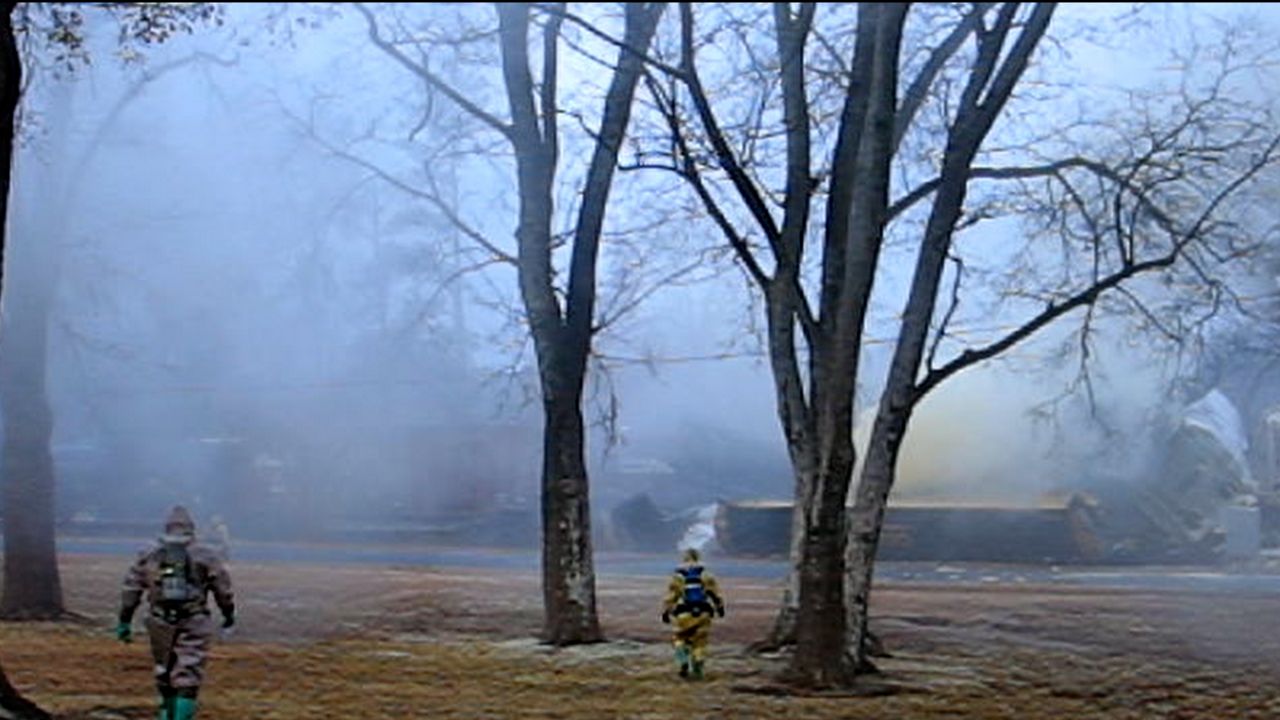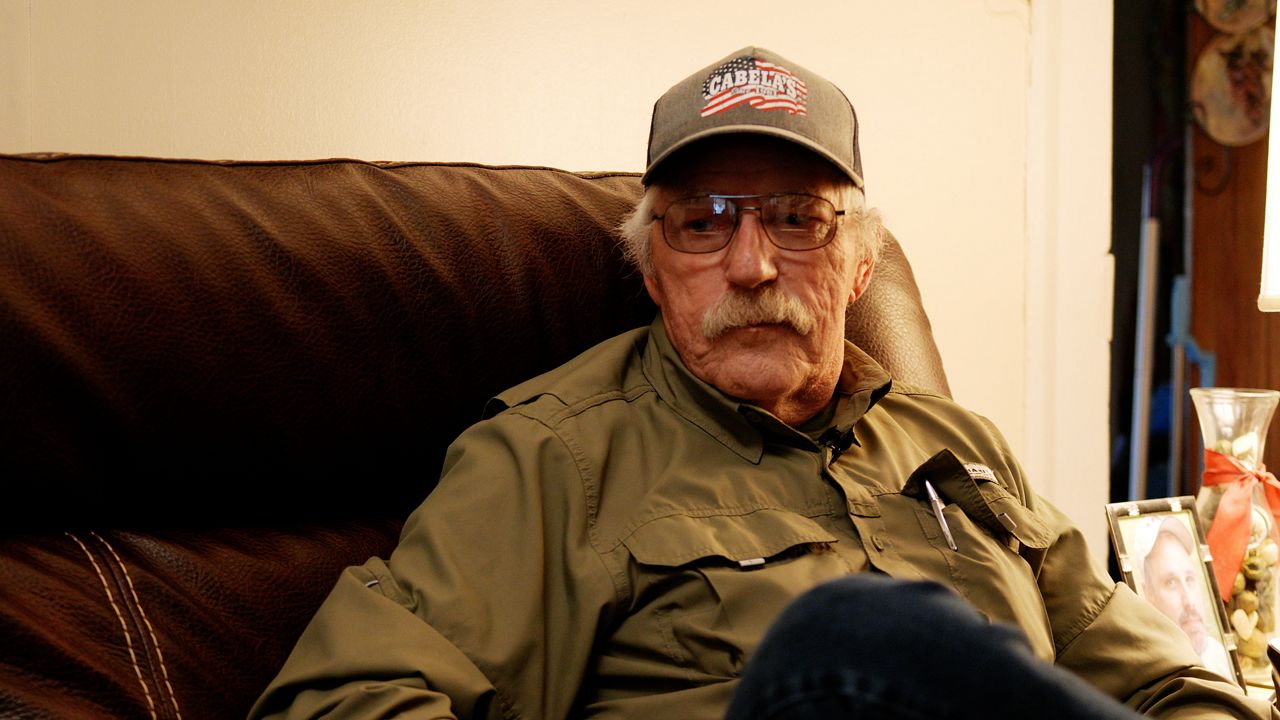GRANITEVILLE, S.C. — Insight into East Palestine’s future may be found nearly 600 miles away, in the small, southern town of Graniteville, S.C.
"You know, I feel sorry for those people in Ohio," former Graniteville Fire Chief Phil Napier said. "Because they just don't know what they got ahead of them."
According to the National Transportation Safety Board, on Jan. 6, 2005, Norfolk Southern freight train 192 derailed at 2:39 a.m. while traveling through Graniteville. The train approached an improperly lined switch “that diverted the train from the main line onto an industry track, where it struck an unoccupied, parked train,” the report said.

Both locomotives, 16 of the 42 freight cars from train 192 and one of two freight cars of the parked train, derailed. Three of the tank cars contained chlorine. One was punctured, and 9,218 gallons of chlorine was released. The chlorine quickly vaporized into a poisonous gas 450 times greater than the volume of the liquid released.
Napier was one of the first to respond to a 911 call about the train derailment, where the caller mentioned a noticeable smell and a fog that sat low to the ground.
"I never made it. I never made it here," Napier said. "I breathed in, and it was just like chlorine hit me and all I remember is making a U-turn at the railroad crossing and headed north, but when I came back to my senses, I was on 1 Highway back over here, and I mean, there’s no memory in between there.”

The train engineer and eight other people died as a result of being exposed to the chlorine gas.
“As fire chief, there was nothing I could do. We were getting reports of people dying, for people begging them to come get them," Napier said.
Tears gathered in his eyes.
"There was nothing we could do, so that’s something that will always be in my mind and a lot of the firemen’s minds,” he said.
More than 5,000 people were evacuated. The damages exceeded $6 million. Eighteen years later, a memorial sits along the road.
Napier now represents District 6, which includes the Graniteville area, as an Aiken County Councilman.
“The train derailment took away our way of life and nine individuals," Napier said.
Negative health effects followed.
"If anybody thinks that chlorine doesn’t have an effect, go somewhere someone’s got a swimming pool and open the bucket and stick your head in there and see what you smell and how long you can take it,” Napier said.

The Corley family lives a few blocks up the road from where the train derailed. Adine, 88, said her breathing suffers.
“I’m on three different medications to breathe, and I take a pill to help me breathe and I’ve got asthma now,” Adine said.
Her son, Jerry, is blunt when discussing the situation.
“We got royally screwed,” he said. “Royally. My mamma’s lungs is gone. She’s got 60% of her lungs left. Forty percent of them are gone.”
Adine said she becomes scared when she hears the train come through the town.
“When I hear a tale of another train wreck, just something goes all the way through me, and I feel sorry for the people because I know what they’re going through,” she said.
Rural Health Services is located in Aiken County.
Charity Capers-Williams is a registered nurse and the director of Clinical Operations. She said she treats patients living with similar circumstances as the Corleys.
“[It’s] PTSD, basically — of hearing a train and having panic attacks or being unable to sleep because in that area the trains still run,” she said.
Capers-Williams treated patients in the immediate aftermath of the incident. Many still see her today.

“We do see higher incidents of patients, younger patients, now that would have been maybe in their teens at the time of that train derailment, that they now have unexplained respiratory issues,” she said.
Some of those issues include chronic obstructive pulmonary disease (COPD), asthma and emphysema.
“They’re relating it to, ‘OK, I’ve never smoked,’” she said. “‘I never stayed in this area where that could have happened from anything else except, I stayed near Graniteville.’”
Off the Rails: Life after toxic train wrecks explored the health effects as well as the financial burden Graniteville residents faced in the aftermath of the chemical leak. Throughout the series, residents also shared their advice for the people of East Palestine.
In a statement to Spectrum News 1, Norfolk Southern did not comment on the situation in Graniteville, but did provide the following statement on East Palestine.
“We have been firm in our commitment to making it right in East Palestine and the surrounding communities in eastern Ohio and Western Pennsylvania. Our employees and contractors remain embedded in the community to serve its residents, and we will remain in East Palestine for as long as it takes.”
Editor's Note: The story has been updated to include a statement from Norfolk Southern. (May 1, 2023)



